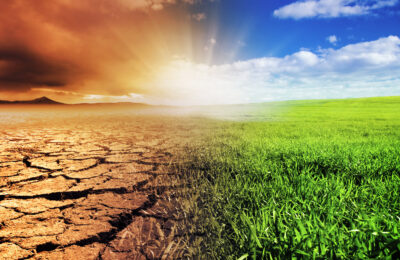 The UK Without Incineration Network has published a good practice guide which provides recommendations for assessing GHG impacts of waste incineration. It is intended to be used by those carrying out such assessment as well as those reviewing or determining how much weight to give those assessments. The guide was created due to the inconsistent quality of such assessments (including those used to inform planning, permitting and policy decisions), and highlights areas where there is a genuine risk that adverse impacts of waste incineration could be significantly understated or misrepresented.
The UK Without Incineration Network has published a good practice guide which provides recommendations for assessing GHG impacts of waste incineration. It is intended to be used by those carrying out such assessment as well as those reviewing or determining how much weight to give those assessments. The guide was created due to the inconsistent quality of such assessments (including those used to inform planning, permitting and policy decisions), and highlights areas where there is a genuine risk that adverse impacts of waste incineration could be significantly understated or misrepresented.
Here is their 15th July Press release and a link to access the guide.
The United Kingdom Without Incineration Network (UKWIN) has today launched a good practice guide for assessing the greenhouse gas (GHG) impacts of waste incineration. The guide is intended to be used both by those carrying out climate assessments and by those reviewing or evaluating those assessments.
‘Good Practice Guidance for Assessing the GHG Impacts of Waste Incineration’ is available to download from https://ukwin.org.uk/climate
The guide was created in response to the inconsistent quality of incinerator carbon assessments. It provides ten recommendations based on an extensive review of the approaches being used by industry practitioners and academics.
Recommendations cover key areas such as accounting for the decarbonisation of the electricity supply, the impact of increased separate collection of food waste, and the potential to recycle much of the material currently used as incinerator feedstock.
Original analysis of the real world performance of waste incinerators informs the guidance. This research found that incinerators often perform significantly worse than modelled for planning applications and environmental permits. Incinerators often deliver lower levels of electricity generation and release higher levels of fossil CO2 emissions, resulting in higher carbon intensity than claimed by those promoting incineration schemes.
Incineration is marketed as an environmentally-friendly alternative to landfill, but many environmentalists and experts place incineration alongside landfill as something from which we need to move away due to the adverse climate impacts of waste incineration, especially as we move towards a Net Zero circular economy.
Guide author Josh Dowen, Associate Coordinator of the United Kingdom Without Incineration Network (UKWIN), says: “Building new incinerators costs hundreds of millions of pounds, locking us into burning waste for decades to come. It is therefore essential that those assessing proposals for new incineration capacity take account of the full climate impacts and opportunity costs.”
Camilla Zerr, Plastics campaigner at Friends of the Earth said: “Plastic is one of the main materials sent to incinerators, creating significant quantities of climate-wrecking carbon dioxide when burnt. And because incinerators need huge quantities of waste to keep them going, there is little incentive to reduce the amount created in the first place.”
“This good practice guide provides valuable information about how to account for the climate harm being caused by waste incineration, strengthening the case for turning off the plastic tap. A joined-up approach to the waste crisis is urgently needed, including legally-binding targets to reduce the amount of plastic created each year.”
Janek Vahk, Climate, Energy, and Air Pollution Programme Coordinator at Zero Waste Europe, said: “Zero Waste Europe welcomes this guidance for assessing the climate harm caused by waste incineration. The findings are in line with our experience of incineration hampering the decarbonisation of the electricity supply and being a backwards step in the journey to zero waste and the circular economy.”
ENDS
NOTES TO EDITORS
The United Kingdom Without Incineration Network (UKWIN) is a network comprising more than 100 member groups who oppose waste incineration.
UKWIN opposes the incineration of waste, including via gasification and pyrolysis, because incineration depresses recycling, destroys valuable resources, releases greenhouse gasses, and is a waste of money. Incineration has no place in the zero waste closed-loop circular economy towards which we should be working.
UKWIN manages a website at: http://ukwin.org.uk/ including a table of existing, potential and prevented incinerators at: http://ukwin.org.uk/table/
To contact UKWIN please e-mail: coordinator@ukwin.org.uk
Camilla Zerr is the Plastics campaigner at Friends of the Earth England, Wales and Northern Ireland (FoE). FoE is an environmental campaigning community dedicated to the wellbeing and protection of the natural world and everyone in it.
Janek Vahk is the Climate, Energy, and Air Pollution Programme Coordinator at Zero Waste Europe. Zero Waste Europe is a Brussels based NGO founded in 2013 whose mission is “to empower communities and change agents from around Europe to redesign their relationship with resources, to adopt smarter lifestyles and sustainable consumption patterns in line with circular resource management”.


